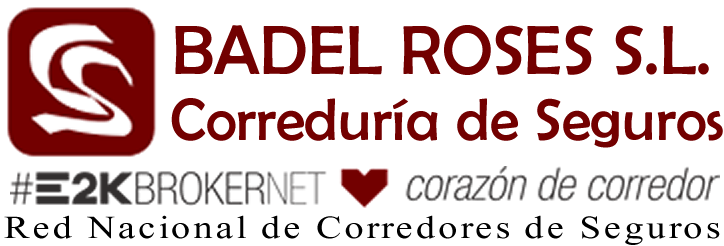Dental Financing: Affordable Options to Pay for Your Dental Care
Understanding Dental Financing

Dental financing provides patients with flexible payment options to afford necessary dental treatments and procedures. With the rising costs of dental care, financing has become an increasingly popular way for people to access the oral health services they need without breaking the bank.
According to a survey by the American Dental Association, cost is the number one reason adults avoid going to the dentist. Dental financing aims to remove this barrier by spreading out payments over time.
There are several types of dental financing available:
- In-house payment plans offered directly by dental practices
- Third-party financing companies specializing in healthcare loans
- Medical credit cards
- Personal loans from banks or credit unions
- Care credit cards specifically for healthcare expenses
The best option depends on your specific financial situation, credit score, and the type of dental work needed. Let’s explore the pros and cons of common dental financing methods.
In-House Dental Payment Plans
Many dental offices offer their own in-house financing programs to help patients afford treatment. These plans allow you to split the total cost into monthly payments paid directly to the dental practice.
Pros of In-House Financing:
- Often interest-free if paid within a certain timeframe (e.g. 6-12 months)
- More flexible approval process compared to third-party lenders
- Can usually be set up quickly right at the dental office
- Builds relationship with your dentist
Cons of In-House Financing:
- May require a down payment
- Typically only for that specific dental practice
- Interest may be charged if not paid off in full by end of promotional period
In-house financing can be a good option for patients who want to avoid credit checks or don’t qualify for other financing. However, be sure to carefully review the terms and understand any fees or interest that may apply.
Third-Party Dental Financing Companies
Several companies specialize in providing loans specifically for dental and medical procedures. These third-party financiers partner with dental practices to offer patients financing options.
Popular Dental Financing Companies:
- CareCredit
- LendingClub
- Proceed Finance
- GreenSky
- Lending Point
Pros of Third-Party Dental Financing:
- Can be used at multiple dental practices
- Often offer promotional 0% APR periods
- Quick approval process, sometimes instant
- Loan amounts up to $40,000 or more
Cons of Third-Party Dental Financing:
- May require good credit to qualify for best rates
- Interest rates can be high after promotional period ends
- Some have annual fees or origination fees
Third-party financing gives patients more flexibility to use the funds at different providers. However, it’s crucial to understand the full terms and pay off the balance before any 0% APR offer expires to avoid high interest charges.
Dental Discount Plans
While not technically financing, dental discount plans can help make treatments more affordable. These plans charge an annual fee in exchange for discounted rates on dental services.
How Dental Discount Plans Work:
- Pay yearly membership fee (typically $100-$200)
- Get access to network of dentists offering 10-60% discounts
- No waiting periods or annual limits
- Can be used in combination with financing
Discount plans can be a good option for patients without insurance who need ongoing dental care. The discounts can significantly reduce out-of-pocket costs, especially when combined with financing to spread out payments.
Medical Credit Cards
Some credit cards are designed specifically for healthcare expenses, including dental care. These cards often feature deferred interest promotions for 6-24 months.
Popular Medical Credit Cards:
- CareCredit
- Wells Fargo Health Advantage
- Alphaeon Credit
Pros of Medical Credit Cards:
- Can be used for multiple healthcare providers
- Often have 0% APR promotional periods
- Revolving credit line
- Quick application process
Cons of Medical Credit Cards:
- High interest rates if not paid off during promo period
- May have annual fees
- Can negatively impact credit score if not managed properly
Medical credit cards offer flexibility but come with risks. According to the Consumer Financial Protection Bureau, many patients have been hit with unexpected interest charges and fees. Be sure to read the fine print carefully.
Personal Loans for Dental Work
Taking out a personal loan from a bank, credit union, or online lender is another option to finance dental procedures. These loans provide a lump sum that you repay in fixed monthly installments.
Pros of Personal Loans:
- Fixed interest rates and repayment terms
- Can be used for any purpose
- May offer lower rates than credit cards for those with good credit
- No collateral required for unsecured loans
Cons of Personal Loans:
- Interest starts accruing immediately
- May have origination fees
- Approval process can take longer than other options
- Typically requires good credit to qualify for best rates
Personal loans work well for patients who want predictable monthly payments and potentially lower interest rates. However, you’ll likely need a good credit score to qualify for the most favorable terms.
Comparing Dental Financing Options
Here’s a quick comparison of common dental financing methods:
| Financing Type | Interest Rates | Typical Terms | Credit Check Required? |
|---|---|---|---|
| In-House Payment Plans | 0-15% | 3-24 months | Sometimes |
| Third-Party Financing | 0-30% | 6-84 months | Yes |
| Medical Credit Cards | 0-30% | 6-24 month promos | Yes |
| Personal Loans | 6-36% | 12-60 months | Yes |
Tips for Choosing the Right Dental Financing
When selecting a dental financing option, consider your financial situation and long-term goals:
- Review all terms carefully before committing
- Shop around to compare interest rates from multiple lenders
- Prioritize plans with 0% APR offers if you can afford the monthly payments during that period
- Consider your credit score and how different options will affect it
- Think about how much flexibility or predictability you need in payments
Consulting directly with dental financing companies and your dentist for a personalized recommendation is always wise.
Dental Financing Product Table (Sample Prices)
The prices below are provided as examples to give an idea of costs associated with various dental financing plans. Actual rates will vary based on your creditworthiness, the treatment type, and specific lender terms.
| Plan Name | Loan Amount | APR Range | Monthly Payment Example | Total Cost (Includes Fees) | Currency |
|---|---|---|---|---|---|
| In-House Dental Plan – Office A | $2,500-$7,500 | 0-18% | $130 to $490/month* | $2,600 to $7,950* | $ USD |
| CareCredit Financing – Office B | $1,000-$20,000+ | 8-29% | $65 to $417/month* | $1,300 to $21,225* | $ USD |
| Wells Fargo Health Advantage – Nationwide | $500-$10,000+ | Variable (14.99%-36.24% as of 1/27/20) | $28 to $305/month* | $522 to $10,720* | $ USD |
| Personal Loan from Bank X – Nationwide | $5,000-$40,000+ | Fixed (6.99%-36% as of 1/27/20) | $118 to $598/month* | $5,500 to $45,700* | $ USD |
| *Based on a 3-year term; APR may vary. | |||||
Note: The above figures are for illustrative purposes only and do not reflect actual loan offers or costs. Always check the most current rates from lenders directly before applying.
Conclusion
Dental financing opens up access to quality dental care even when you face financial constraints. By understanding your options, shopping around for competitive terms, and carefully managing any borrowed funds, you can protect both your oral health and budget.
If you have questions about a specific plan or are unsure how much certain procedures will cost, consult with your dentist to discuss the best financing route tailored to your needs.
- Loans For Bad Credit
- 1K Personal Loan
- 1200 Personal Loan
- 2K Personal Loan
- 10K Personal Loans
- 3K Personal Loan
- 1500 Personal Loans
- 5K Personal Loan
- 8K Personal Loan
- 7K Personal Loan
- 4K Personal Loan
- 20K Personal Loan
- 25K Personal Loan
- 2500 Personal Loans
- 50K Personal Loan
- 6K Personal Loan
- 3500 Personal Loans Good Bad Credit
- 15K Personal Loan
- 30K Personal Loan
- 100K Personal Loan
- 550 Credit Score Personal Loan
- 520 Credit Score Personal Loan
- 500 Credit Score Personal Loan
- 620 Credit Score Personal Loan
- Personal Loans For Credit Score Under 600
- Personal Loans For High Income Individuals
- Loans For The Unemployed With Bad Credit
- Bad Credit Loans New York
- Bad Credit Loans California
- First Time Personal Loans No Credit History
- Personal Loan With Co Signer
- Emergency Loans For Bad Credit
- Christmas Loans For Bad Credit
- Same Day Personal Loans
- Car Repair Loans For Bad Credit
- Motor Cycle Loans For Bad Credit
- Bad Credit Loans Texas
- Dental Financing
- Roof Financing
- Holiday Loans For Bad Credit
- Personal Loan After Bankruptcy
- Tractor Financing
- Lawn Mower Financing
- Bad Credit Loans Georgia
- Bad Credit Loans Illinois
- Personal Loan With Collateral
- Manufactured Home Financing
- Bad Credit Loans Pennsylvania
- Hvac Ac Financing
- Bad Credit Loans Arizona
- Bad Credit Loans Louisiana
- Bad Credit Loans Virginia
- Rv Financing
- Loans For Postal Employees With Bad Credit
- Bad Credit Loans North Carolina
- Land Loans For Bad Credit
- Furniture Financing
- Personal Loans For Low Income Individuals
- Bad Credit Loans Arkansas
- Plastic Surgery Loans For Bad Credit
- Esign Loans For Bad Credit
- Vacation Loans For Bad Credit
- 12 Year Personal Loan
- Flooring Financing
- Personal Loans In Illinois
- Illinoischicago Illinois
- Plumbing Financing Work Repairs
- Fence Financing
- Loans For Independent Contractors
- No Credit Check Home Improvement Loans
- Bad Credit Loans New Jersey
- Loans For Uber Drivers With Bad Credit
- Pool Financing
- Bad Credit Loans Ohio
- Subprime Personal Loans
- Rv Loans For Bad Credit
- Bad Credit Loans Maryland
- Bad Credit Loans Iowa
- Personal Loans In Connecticut

